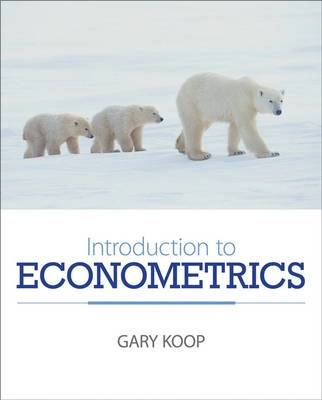Introduction to Econometrics has been written as a core textbook for a first course in econometrics taken by undergraduate or graduate students. It is intended for students taking a single course in econometrics with a view towards doing practical data work. It will also be highly useful for students interested in understanding the basics of econometric theory with a view towards future study of advanced econometrics. To achieve this end, it has a practical emphasis, showing how a wide variety of models can be used with the types of data sets commonly used by economists. However, it also has enough discussion of the underlying econometric theory to give the student a knowledge of the statistical tools used in advanced econometrics courses. Key Features: * A non-technical summary of the basic tools of econometrics is given in chapters 1 and 2, which allows the reader to quickly start empirical work. * The foundation offered in the first two chapters makes the theoretical econometric material, which begins in chapter 3, more accessible. * Provides a good balance between econometric theory and empirical applications. * Discusses a wide range of models used by applied economists including many variants of the regression model (with extensions for panel data), time series models (including a discussion of unit roots and cointegration) and qualitative choice models (probit and logit). An extensive collection of web-based supplementary materials is provided for this title, including: data sets, problem sheets with worked through answers, empirical projects, sample exercises with answers, and slides for lecturers. URL: www.wileyeurope.com/college/koop
Åtkomstkoder och digitalt tilläggsmaterial garanteras inte med begagnade böcker





















